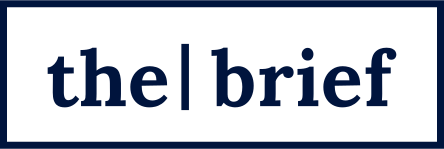
Money 2.0: How Technology Is Changing the Way We Manage Money
Technology has altered every facet of our personal finances, from how we make money to how we invest it. But how have these changes affected us?
Expert-driven advice and resources to help you earn, save and grow your money.
Our reviews and product recommendations are based solely on independent research and product comparison.
We are a team of financial writers, researchers and professionals who love educating people about finance.




Technology has altered every facet of our personal finances, from how we make money to how we invest it. But how have these changes affected us?

With all this talk about inflation have you ever stopped to consider if you really know what inflation is? If you’re not really sure - join the club and read on.

Have you wondered how much you need to invest to live off dividends? Here are the realities of using passive dividend income for retirement.

There is a high cost to being poor. Let's look at what are some of the actual added costs when you can't pay for basic necessities outright?

Expensive material possessions can create the illusion of wealth, but buying them can cripple your finances. Find out how and why.

The evolution of personal finance has been going on for decades. Find out what’s changed, what hasn't, and what it all means for you.

We take a look into pet spending statistics to see just how much money Americans spend on their pets each year.

Take look at data on demographic trends in credit scores and see what the average credit score looks like by age, race and state.

We researched and collected the most interesting statistics and facts about minimum wage and minimum wage workers.

If you live in a small town or rural area, you might find it difficult to earn extra income. However, there are side hustles and gig jobs for people living in small towns, just like there are for those living in big cities.

We crunched the numbers to find the truth about making money online. Is it possible to make money online at all, let alone to get rich?

Jobs that provide housing can be a great way to travel the world, pay for college or build savings. Here are 25+ options to consider!

Whether you are budgeting or investing, you are grappling with several psychological factors affecting your financial decisions.

Money scripts are the unconscious beliefs you have about money. Learn what yours are and how they affect your financial decisions.

Here are nine cognitive biases that have a particularly strong impact on personal finance choices.
Our collection of financial tools and resources will assist you with money management, investing and more.
Become a savvier investor and get on the fast track to reaching your investment goals with our investing resources.
Deep dives on value stocks
Learn from the best
FREE Ebook
See how much you would have made
Compare the performance of any two stocks
All the tools you need to better manage your finances.

Sign up for The Brief by finmasters, our weekly newsletter and get the latest briefingon all things personal finance. Plus more tips on how to make more money, invest better and reach your financial goals.
The ultimate credit repair action plan
Test your financial health
Set up, cancel or dispute things
Never miss a bill payment
Start budgeting
A list of must-reads
Our collection of over 70 financial calculators is the best way to start any financial analysis.
From creating a budget, calculating the cost of borrowing, debt payoff and planning for your future, you’ll find the calculator you need.
We did a little mythbusting on one of the burning questions of the moment. Here's what you need to know about why gas prices are so ...
With all this talk about inflation have you ever stopped to consider if you really know what inflation is? If you’re not really sure - join the club and read on. ...
Learn all about the 12 valuation ratios that allow investors to quickly estimate a business’s value relative to its ...
Not all rent reporting services are created equal. To maximize your credit score increase you need to choose the best rent reporter for you. Learn ...
Here's what you should know about the 15/3 credit card payment hack, including how it works and whether you should use ...
In this blog post, we take a closer look at why you couldn't build credit with a debit card before, and why you can ...